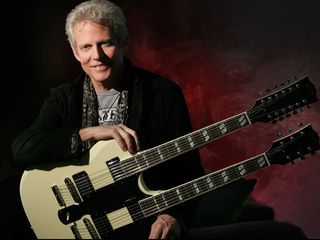
Don Felder picks 10 essential guitar albums
“Great albums can span categorizations, but I’ve always leaned toward listening to and enjoying guitar albums," explains six-and-12-string icon Don Felder. "Whether it’s Chet Atkins or Jeff Beck or whoever, my fascination has always been on what people can do with an electric or acoustic guitar."
A self-taught musician, who first became interested in the guitar after seeing Elvis Presley on the Ed Sullivan Show, Felder developed a discerning ear at an early age, studying the backs of albums for the names of players. "It was an exciting time when I came up," he says. "I was hearing a lot of guitarists who refined their skills on the guitar to a very high degree. The dexterity was there, but more important, there was a lot of imagination and invention."
In Felder's view, that last thought can't be overemphasized: He placed a premium on creativity and expression when compiling his list of 10 Essential Guitar Albums. "We've all seen people who can play fast, but after a minute of that, it gets repetitious," he says. "You've got this piece of wood and some wires, pickups and some strings. How somebody uses that configuration to make something memorable, that's what's interesting to me."
With only one exception, all of Felder's picks date before 1980. The guitarist points out that he's not a traditionalist ("I love watching the late-night shows and seeing the new groups"), but he laments what he calls "the Guitar Hero syndrome. Playing a video game isn't the same as playing the guitar. And this reaches out to other technology, as well, with the focus now on Pro Tools and Auto-Tune. Something's getting lost."
But Felder insists that he's still hopeful for new breakthroughs. "We've been there before," he says. "For a while there it was synths and drum machines, and it came back to real players again. All it takes is somebody doing something new. It'll happen.”
On the following pages, Don Felder runs down his choices for 10 Essential Guitar Albums. On March 25th, he will an extended edition of his 2012 album, Road To Forever (click here to purchase). And on May 14th, Felder hits with road with Styx and Foreigner for the Soundtrack Of Summer Tour (click here for dates and ticket into). The guitarist recently got together with both bands to record a new version of the Eagles' classic Hotel California (which he co-wrote), which will be released soon.
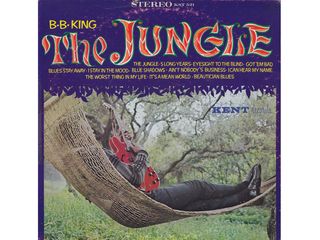
BB King - The Jungle (1969)
“There are so many great BB King albums, but I’ve always loved this one. I used to listen to BB on the radio. I grew up in Gainesville, Florida, and if the weather was good, I could pick up WLAC from Nashville, Tennessee, on my crystal radio set. During the day, you’d hear Pat Boone sing Tutti Frutti, but at night you’d hear Little Richard doing the original. Talk about night and day – for real. So this is how I first heard BB.
“I was a real fan and would mow lawns to save up enough money to buy his records. Finally, I got to see him play live outside a barn in Gainesville. In the Deep South in the late ‘50s, there was extreme racism and complete segregation – black and white drinking fountains, black and white restrooms. You couldn’t get a liquor license in the area of town where African-Americans lived, so they would hold parties outside of town at these farms. They’d buy kegs of beer, throw bales of hay on tables, and they’d have musicians play.
“I was 14 or so, and I went with a friend out to this barn to see BB. He was standing there, playing and singing, and all the women were screaming and crying, ‘Tell it like it is, BB! Oh, my Lord!’ It was so moving. And I have to say, I was electrified. It was 100 times more powerful than what I'd heard on his records.
“After he finished playing, he went in the back and sat down on this bale of hay. I went over and shook his hand and told him that I bought his records. It was incredible to meet him – I’ll never forget it. The impression he made on me was huge. I stole every lick from him that I possibly could.”
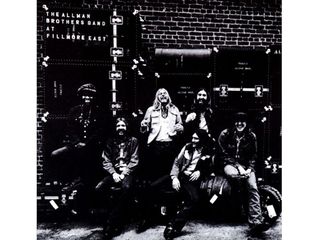
The Allman Brothers Band - At Fillmore East (1971)
“Duane Allman taught me how to play slide guitar as a kid. We grew up together and did battles of the bands and all that stuff. He was a great friend, a truly wonderful human being.
“When I heard this live recording, I thought it was unbelievable. I was just floored. I moved to New York and played with my band at the Fillmore, just as the Allmans had done, in the hopes that somebody would discover me. And, in fact, they did – there was a record producer named Creed Taylor in the audience. He signed us to do an album.
“I’ve always had a great appreciation for Duane. His phrasing, his dedication, his overall abilities – nobody could play like him. The anthology is a fantastic collection, but I’ve always loved his playing on the Fillmore album.”
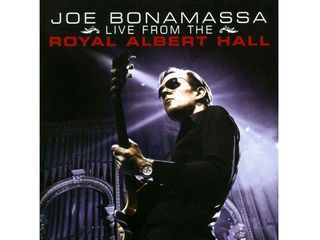
Joe Bonamassa - Live From the Royal Albert Hall (2009)
“Joe’s blues playing today is unrivaled. Of all the people who are doing it right now, Joe goes right to the top of the class. He’s the crown jewel of current blues guitarists.
“I’m such a fan of his work, and I was particularly flattered to learn that he not only owns a Don Felder Hotel California EDS-1275, but he even played it in his show for a while. I was like, ‘Yes! Go, Joe!’ One of his guitar techs called me and told me about it. That was so nice.
“The first time I heard him, I was in a cab riding to an airport. The driver was playing a cassette, and I went, ‘Who is that?’ The driver said, ‘Oh, that’s Joe Bonamassa, man. He’s unbelievable.’ I went, ‘He sure is. Turn it up!’ As soon as I got to LA, I went out and bought all of his records. The Royal Albert Hall Album is really terrific.
“A brilliant player. I’ve never met him, but I’d love to. And it would be great if we could play on the same stage together one day.”
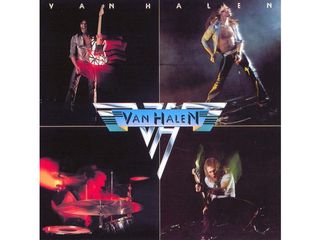
Van Halen - Van Halen (1978)
“I think Eddie is one of the most creative and energetic players to have come along in a long, long time. When he hit the scene, he was doing stuff that nobody else was – all the tapping, his phrasing, his tone. He was the Hendrix of his time.
“You can’t take anything away from the rest of the band – terrific playing, great vocals and songs – but Eddie’s guitar work just turned everything upside down. Everybody was going, ‘Wow, have you heard this?’ It really hit us all that something new was going on.
“I’ve known Eddie for a long time. He and I just did a show together at Fender – me, Eddie, Dave Mason and some other guys. It was great to see him clean and sober and just playing his buns off. He’s as good, if not better, as he’s always been. He hasn’t lost a step in all the years he’s been doing it.
“The band has made a lot of amazing records, but Van Halen, the debut album, blew me away the first time I heard it. Eddie just plugged in and let it rip. I don’t think anybody’s done something so innovative in years.”

Pink Floyd - The Wall (1979)
“David Gilmour, to me, is one of those guys who takes on the instrument in his own unique way. It’s like, ‘I owe this tone. This sound is mine.’ That's something people talk about a lot, establishing your own sound, but very few guitarists really achieve that distinction.
"When you hear Dave Gilmour playing on any of the records he’s done, you know who it is. His sound and his phrasing are unmistakably his own. He plays solos and licks that are so appropriate for the song. Everything he does is just impeccable.”
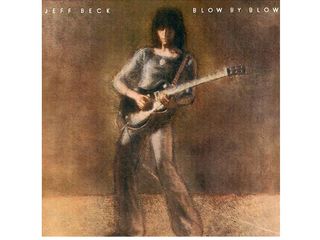
Jeff Beck - Blow By Blow (1975)
“I remember hearing this record when my son bought it. By the time he was 14, he was already a really good guitar player. He’d sit in his room and shred to Clapton and the Allman Brothers and a bunch of others. I taught him some basic scales when he was really young and gave him tips on ear training. He’d woodshed and figure things out, but then he’d come back to me – ‘Dad, how do these guys do this?’ So I’d sit down with him and we’d go through it. I’d help him work out how to play certain parts. It was a lot of fun.
“So what happens? One day I heard Blow By Blow, and I thought, ‘Oh, my goodness… My son is playing stuff from that album. I should be asking him how to do it! I gotta ask him how Jeff Beck does it.’ It was pretty stunning.
“Jeff gets sounds out of a Strat that nobody else can. He’s probably the most soulful and creative player I’ve ever seen, and I’ve seen him live maybe half a dozen times, in some very small settings, too. I saw him a couple a months ago with just an acoustic guitar player and a violinist on stage with him – totally different from what he usually does – and it was equally as impressive as when he plays with a more traditional rock band. He’s brilliant. I admire him so much.”
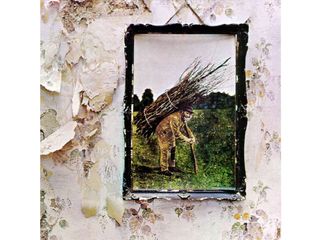
Led Zeppelin - Led Zeppelin IV (1971)
“This particular album has some of the best, most inventive and memorable guitar parts from that particular era. The guitar introduction to Stairway To Heaven, before anybody else comes in, creates such a special, magical mood. You know there’s magic to come, and it’s all in what Jimmy Page plays.
“Along with Clapton and Beck, he's one of those guys who has that rare gift. He can pick up and electric guitar and write the most phenomenal pieces of music that you can instantly relate to.
“Benjamin Franklin once said, ‘If you want to teach somebody something, set it to a simple melody.’ It's like the ABCs – there's a lot there, but the melody is simple. Page has that distinct concept down, that when you play something, it doesn’t have to be a million notes to be meaningful. What he plays does take dexterity – some of the parts are tricky – but it’s not the same kind of thing that guys do when they’re going, ‘I’m going to show you how fast I can play.’ His dexterity is used to make you feel something, and that’s why it matters.”
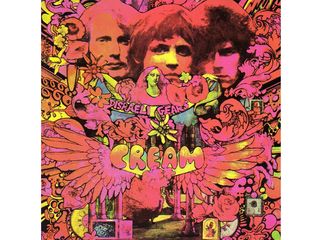
Cream - Disraeli Gears (1967)
“This one blew my mind. I was listening to it with some friends, and we must have played it 20 times, just over and over and over. Hearing it made me realize that I had a lot of work to do on the guitar.
“This was like the modern version of BB King, where you play stuff that’s melodic and memorable but with a raw, gritty edge to it. Clapton’s tone and aggression – the way he played off Ginger Baker, the whole intensity of it – was just phenomenal.
“I’ve been a huge fan of Eric’s for years. Of course, I love what he did with Duane on Layla – two brilliant players together – but I remember how hearing Disraeli Gears affected me so profoundly."
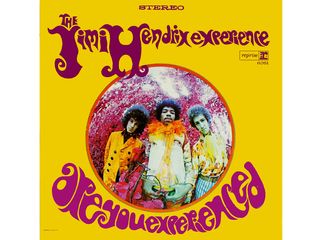
The Jimi Hendrix Experience - Are You Experienced (1967)
“Certain things jump out at you the first time you hear them on the radio. That was the case for me with Foxy Lady. The tone of Jimi Hendrix’s Strat, the vibrato in his playing, the way he sang and the overall kind of psychedelic approach to music, it just reached right out and grabbed me by the throat and said, ‘Listen to this!’
“If you saw the recent documentary on Jimi, you can see his development from playing in these R&B background bands – he was playing rhythm guitar and had to wear matching suits like everybody else – to blossoming into what we all eventually saw, somebody who played in his own style and did his own thing.
“I don’t know how much of it was propelled by a drug infusion, but something sure opened up his psyche and had a dramatic impact on him. He was already talented, but he managed to find his own identity, and that allowed him to radically alter the way the guitar was played.”
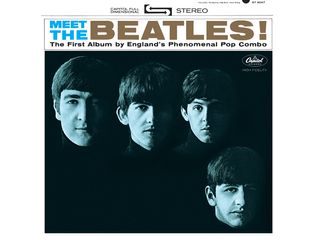
The Beatles - Meet The Beatles (1964)
“Elvis and BB King influenced me in so many ways – the way I thought about recording, songwriting, arranging and guitar parts – but just as important was the early Beatles stuff. George Harrison had a way of taking a sound and tone and making it unique to every song he played.
“He was a very sophisticated guitarist. The lines he developed were melodic and so appropriate to the song. You can’t even think of the songs without imagining the solos and the little parts he played. And he did this without stepping on the vocals or taking you out of the tune. He kind of played like a songwriter.
“When I joined the Eagles, that was the way I approached things. I didn’t want to show off; I simply wanted to fill all the right holes and support the song. With composition, you establish a melody, then you develop the melody, and then you recapitulate the original melody. That’s what George did: There was the song, and inside of it would be somewhat of a development – not quite the melody but George’s version of it – and then it would go back to the melody of the song.”

Joe is a freelance journalist who has, over the past few decades, interviewed hundreds of guitarists for Guitar World, Guitar Player, MusicRadar and Classic Rock. He is also a former editor of Guitar World, contributing writer for Guitar Aficionado and VP of A&R for Island Records. He’s an enthusiastic guitarist, but he’s nowhere near the likes of the people he interviews. Surprisingly, his skills are more suited to the drums. If you need a drummer for your Beatles tribute band, look him up.

"It may have bothered him that people didn’t recognise his guitar virtuosity, which might be why the song devotes so much space to his shredding": A music professor breaks down the theory behind Prince's When Doves Cry

“It didn’t even represent what we were doing. Even the guitar solo has no business being in that song”: Gwen Stefani on the No Doubt song that “changed everything” after it became their biggest hit

"It may have bothered him that people didn’t recognise his guitar virtuosity, which might be why the song devotes so much space to his shredding": A music professor breaks down the theory behind Prince's When Doves Cry

“It didn’t even represent what we were doing. Even the guitar solo has no business being in that song”: Gwen Stefani on the No Doubt song that “changed everything” after it became their biggest hit
Most Popular







